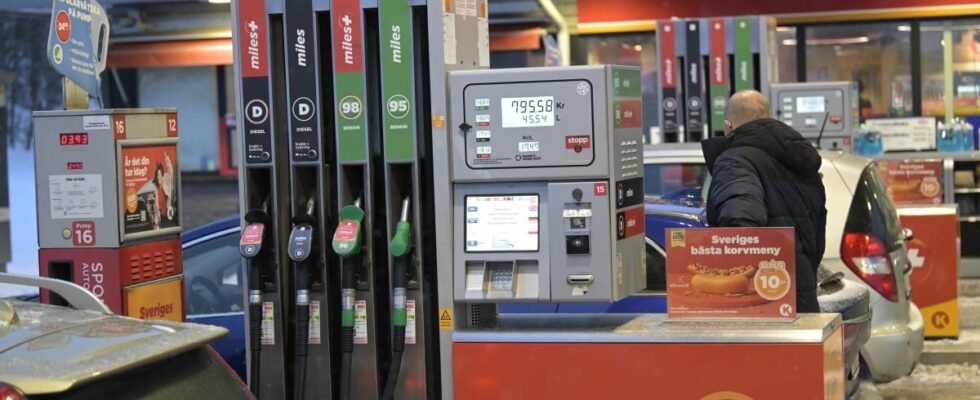The new system ETS2 was developed by the EU and sets a price on carbon dioxide emissions. On Wednesday, it was voted through by the Riksdag.
Several critics believe that the introduction of the system will lead to shockingly high prices for petrol and diesel.
Experts have spoken of SEK 35 per litre, or even more, for regular 95-octane petrol.
Therefore, the EU system can raise prices
The reason why the prices of petrol and diesel are expected to increase sharply is due to the fact that all companies will buy emission rights for their emissions.
Already after the new year, all fuel companies must start reporting their emissions. Two years later, the next step will be introduced, reports We Car Owners.
– Then these companies must submit an emission right for the emissions that are made. They must buy an emission right that covers the emissions made by selling petrol or diesel, says Victor Gunnarssonresponsible for competitiveness issues at the industry organization Drivkraft Sweden, to the newspaper.
In the long run, ETS2 should lead to the costs of all emissions gradually increasing, which in turn makes more environmentally friendly alternatives more attractive.
DON’T MISS:
Elon Musk nominated for award: Can follow in Mandela’s footsteps
Simple AI trick could revolutionize electric cars
This is how the price of petrol and diesel is affected
How big an impact the new system of emission rights will have on diesel and petrol prices is currently unclear.
The government expects an increase of around 1 kroner per liter when introduced in 2027, but others have, as I said, warned of significantly higher prices.
– The emission right is a variable component that is added on top of other parts of the fuel price. Since it is the market that rules, it is difficult to say how big the exact effect will be. But in the bill, the government expects a slightly higher price per liter when introduced in 2027, says Viktor Gunnarsson to Vi Bilägare.
The government wants to compensate motorists
If the ETS2 system has an impact on fuel prices, the government has stated that car owners must be compensated “fully” for the increased costs.
Exactly what form this compensation will take is currently not clear. However, there is already a proposal to lower the tax on fuel to the lowest level that the EU allows.
The Left Party believes instead that the compensation should be aimed specifically at groups that are hit hardest by increased fuel prices, such as households with low incomes and those living in sparsely populated areas.
– The support should be focused on precisely these groups and thus limited, said the member of parliament from the Left Party Kajsa Fredholmwhen the issue was debated in the Riksdag.
DON’T MISS:
The Prime Minister wants to lift the ban on petrol and diesel cars
The EX90 is supposed to be the safest Volvo ever — flops in the moose test
